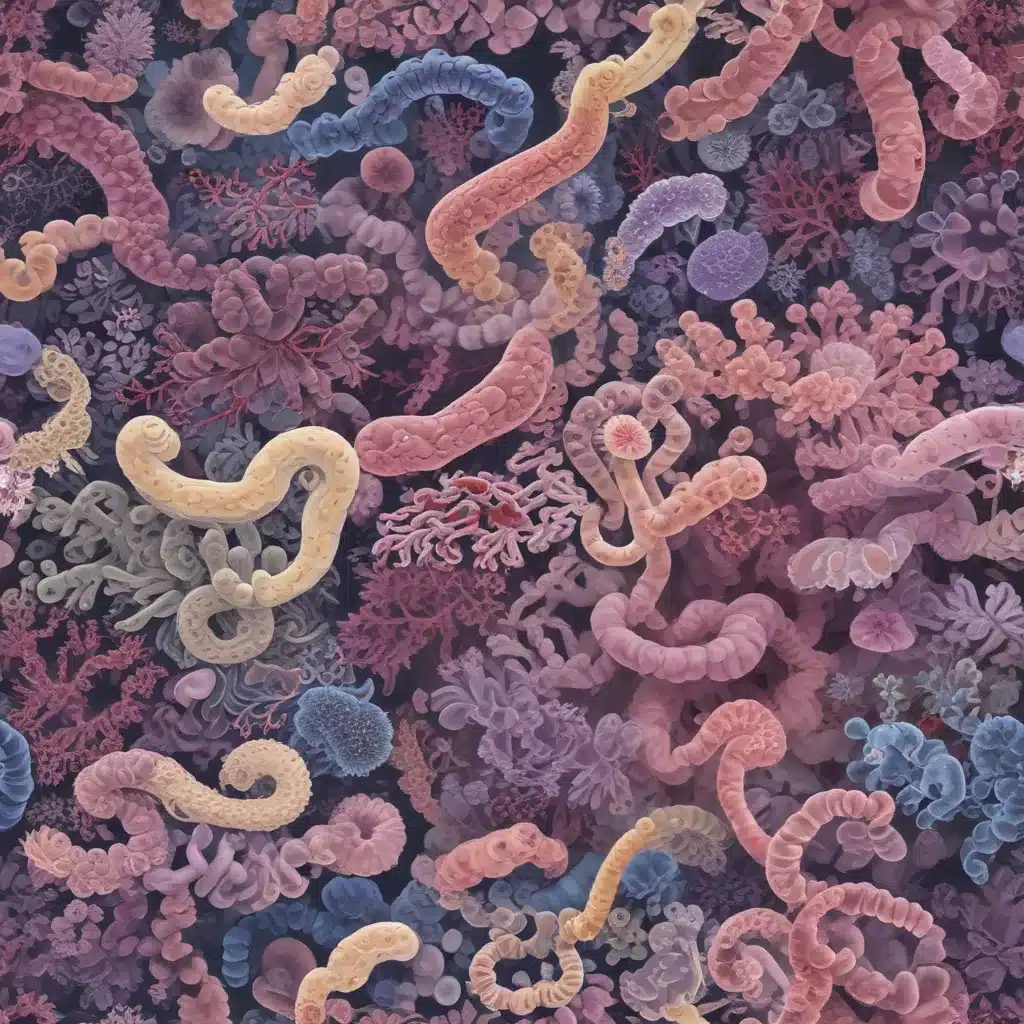
The gut microbiome is an intricate ecosystem of trillions of microbes that play a pivotal role in our overall health and well-being. This invisible community residing within us not only aids in digestion and nutrient absorption, but also profoundly influences our immune function and even our mental state.
At the intersection of this gut-brain axis lie the intestinal epithelial barrier and the immune system – two critical players in the delicate balance that maintains homeostasis. When this symbiotic relationship is disrupted, it can have far-reaching consequences, including the development of mental health disorders like depression.
The Intestinal Barrier: Gatekeeper of Gut Health
The intestinal epithelium forms a crucial physical and functional barrier that separates the gut contents from the internal milieu. This single layer of specialized cells, along with the mucus they secrete, prevents the uncontrolled passage of microbes, toxins and other potentially harmful substances into the body.
The epithelial cells are tightly sealed together by intricate junctional complexes, including tight junctions, adherens junctions and desmosomes. These structures act as gatekeepers, carefully regulating the movement of materials across the barrier. Underlying the epithelium is the lamina propria, which houses a dynamic network of immune cells tasked with monitoring the gut environment and responding appropriately to potential threats.
The Immune System: Guardians of the Gut
The intestinal immune system is a highly sophisticated and finely tuned network of cells and molecules that work in concert to maintain homeostasis. Innate immune cells, such as macrophages, dendritic cells and innate lymphoid cells, provide the first line of defense against pathogens. Meanwhile, adaptive immune cells, including T and B lymphocytes, orchestrate more targeted responses and establish long-term memory.
These immune sentinels patrol the gut, sampling the contents of the lumen and coordinating appropriate reactions. In a healthy state, the immune system remains relatively quiescent, tolerating the presence of commensal microbes while standing ready to mount a robust response against true threats.
The Microbiome: Orchestrating the Gut-Brain Axis
The trillions of microbes that make up the gut microbiome are not mere bystanders, but active participants in the complex interplay between the intestinal barrier and the immune system. These microbes, and the metabolites they produce, can profoundly influence the structure and function of both the epithelial barrier and the immune cells.
Short-chain fatty acids (SCFAs), such as butyrate, acetate and propionate, are metabolic byproducts of microbial fermentation that have been shown to enhance epithelial integrity, promote mucus production and modulate immune responses. Conversely, disruptions to the microbiome, known as dysbiosis, can compromise the barrier, trigger inflammatory cascades and contribute to the development of depression and other mental health disorders.
The Gut-Immune-Brain Axis in Depression
Emerging research has unveiled a crucial link between the gut microbiome, intestinal barrier function and the pathogenesis of depression. Individuals with depression often exhibit increased intestinal permeability, or “leaky gut,” allowing the passage of bacterial components and inflammatory mediators into the systemic circulation.
These gut-derived signals can activate the immune system, leading to the production of proinflammatory cytokines that have been strongly associated with depressive symptoms. Cytokines, such as interleukin-1β, interleukin-6 and tumor necrosis factor-α, can directly influence neurotransmitter synthesis, neural plasticity and brain function, contributing to the manifestation of depression.
Interestingly, the T helper 17 (Th17) pathway, which is involved in the generation of inflammatory cytokines, has been identified as a key player in the gut-brain axis underlying depression. Dysregulation of this pathway, potentially driven by microbiome imbalances, may be a critical mechanism linking intestinal inflammation to altered brain function.
Targeting the Gut-Immune-Brain Axis for Depression Management
Given the growing evidence implicating the gut-immune-brain axis in depression, novel therapeutic strategies targeting this multifaceted system have emerged as promising avenues for intervention.
Probiotics and Psychobiotics
The use of probiotic and “psychobiotic” (probiotic strains with mental health benefits) supplements has shown promising results in alleviating depressive symptoms. Certain Lactobacillus, Bifidobacterium and Akkermansia species have been associated with improvements in mood, cognitive function and markers of inflammation.
Fecal Microbiota Transplantation
Fecal microbiota transplantation, which involves the transfer of stool from a healthy donor to an individual with dysbiosis, has demonstrated potential in the treatment of depression. By restoring a more balanced gut microbial community, this approach may help to repair the compromised intestinal barrier and modulate the immune response, thereby improving mental well-being.
Dietary Interventions
Dietary modifications, such as the consumption of fiber-rich, plant-based foods, have been linked to a reduced risk of depression. These nutrient-dense diets can nourish the gut microbiome, promote the production of beneficial SCFAs and support the integrity of the intestinal barrier.
Targeted Microbial Therapies
Advances in biotechnology have paved the way for the development of genetically engineered probiotic strains and other microbial-based therapies. These innovative approaches aim to deliver specific microbial components or metabolites directly to the gut, with the potential to restore immune homeostasis and improve mental health.
Unraveling the Complexities of the Gut-Immune-Brain Axis
While our understanding of the gut-immune-brain axis in the context of depression has progressed significantly, there is still much to be explored. Large-scale, longitudinal studies and continued advancements in multi-omic technologies will be crucial in unraveling the intricate mechanisms underlying this bidirectional relationship.
As we delve deeper into the intricacies of the gut microbiome, the intestinal barrier and the immune system, we move closer to developing more personalized, effective and holistic approaches to the management of depression and other mental health disorders. By nurturing the delicate dance between these partners, we may unlock new pathways to improved well-being, both physically and mentally.

